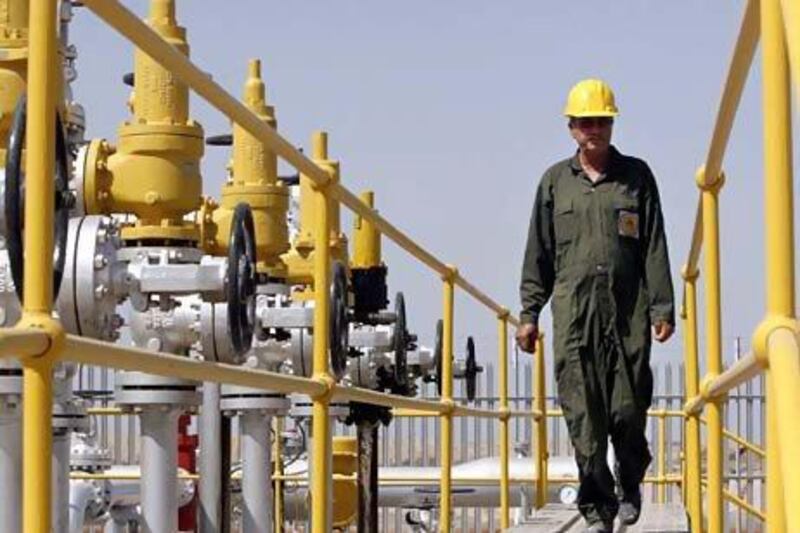'You can see the current economic situation of the people, I hope someone would take the responsibility for that," said the Iranian football star Ali Daei. For any major oil exporter, being cut off from some of the world's largest markets, subject to steadily constricting curbs on its remaining customers, prevented from shipping or insuring cargoes, denied payments, forbidden imports of technology and fuels, would seem to mean certain relegation from the top division.
A report by the Energy Information Administration on Iran, just released in the United States, details some of the impacts of sanctions. Multi-layered sanctions have been imposed by the US, European Union and United Nations over Iran's nuclear programme.
The toughest measures came from late 2011 onwards. Iranian oil exports dropped in 2012 by 39 per cent, to their lowest level since 1986, when the Iran-Iraq War was still raging. Still Opec's third-largest exporter at the start of 2012, by the year's end it was only seventh.
In the middle of 2012, its production fell below long-time rival Iraq's for the first time in a quarter of a century. Barring state collapse in Iraq, the Iranians will probably never overtake the Iraqis again.
Iran's inflation rate, officially 30 per cent, may have surpassed 80 per cent in reality. The rial has collapsed from 10,700 to the dollar to around 35,000 on the black market. Only four basic food items are still subsidised; cooking oil is now off the list, and lower-income Iranians can barely afford meat.
This gloomy litany seems to validate the observations of sanctions supporters that, as the White House claimed, sanctions are working or, as the Israeli finance minister declared in September, that Iran's economy "is on the verge of collapse".
But such assessments underestimate Iran's ability to adapt, and its leadership's willingness for its people to suffer.
Even at reduced export levels, Iran is benefiting from near-record oil prices. As recently as the 1999 oil price slump, it was receiving just $250 per person in oil export revenues; in 2012,that grew to $875. And 2011's inflation-adjusted oil revenues of around $95 billion were the second-highest the country has ever received, after 1974.
The sanctions have laid bare the Iranian administration's remarkable incompetence and waste. This historic oil boom was squandered on handouts, corruption and a surge of imports encouraged by a wildly overvalued exchange rate.
If anything, the collapse of the rial has returned it to a realistic rate, given Iran's continuing high inflation, making domestic industry more competitive. Ironically, sanctions pressure has spurred Tehran's fractious polity to take long-needed steps, upgrading domestic oil refining and removing costly energy subsidies. The economy shrank 1.9 per cent last year - serious, but hardly comparable to Greece's 6.8 per cent fall.
Iran's rather diversified and self-sufficient economy is much better-placed to weather sanctions than Iraq's after its invasion of Kuwait in 1990.
The global oil market balance is easing - otherwise such stringent sanctions could never have been imposed - but China and others will always be keen to buy Iranian oil. Iran will offer discounts; its trading partners will devise diversions to sidestep western dominance of finance, insurance and shipping.
The technical efficacy of sanctions is a question apart from their morality, or their effects on Iranian society and a potentially pro-democracy middle class and civil society. Pseudo-privatisation and lobbying government for favours is creating a class that not only copes with sanctions, but even benefits.
Sanctions may be western diplomats' best available choice, from a rather undesirable menu. They may encourage Tehran to keep negotiating. But advocates should not have rosy ideas that sanctions will bring the speedy collapse of the regime in Tehran, or lead to a unilateral surrender of its nuclear programme.
Robin Mills is the head of Consulting at Manaar Energy, and the author of The Myth of the Oil Crisis and Capturing Carbon





